- Home
- Brian Lumley
Demogorgon Page 4
Demogorgon Read online
Page 4
‘A … A DONKEY?’ the awful voice questioned. ‘FATHER, IS IT FITTING? THIS IS THE BEAST THAT CARRIED THE GOOD ONE!’
The lightning had paused; but now, as if by way of a command or a threat, it stabbed again – a massive bolt that struck the upright slab and hurled it flat over the yawning vault, sealing the secret place shut once more. The amoeba-thing staggered back from that blast and cried:
‘I … I HEAR, FATHER – AND I OBEY!’
The elongated, vibrating pseudopods fell at once upon the donkey. It screamed like a man in its agony, as its flesh was absorbed and the shuddering thing at the closed vault grew larger still. Now the lightning flickered in eery traceries along the undersides of the clouds, for all the world as if the elements tittered! And by the light of that weird coruscation Kastrouni saw that which finally broke the spell to send him running into the night, then bounding onto his beast’s back, then riding as if all the devils of hell rode at his heels – which indeed they might have. A sight to scar a man forever, which in fact it did, for his hair turned white in the space of that single night. It was this:
The ink-black thing where it stood with its outstretched tendrils began to shudder more violently yet – and at the same time it began to change!
Where a monstrous leech had imitated the shape of a man, now the head and shoulders of a real man became clearly visible. His face, lit by the flickering energies of the sky, was lifted in peals of awful laughter – laughter in which George Guigos’s voice was still all too obviously present. But the face itself was not Guigos’s face! It had the gleaming white teeth of Ihya Khumnas and his hooked nose, but it also had the white blaze of Mhireni’s scar! And worse, as the metamorphosis continued down the length of that re-born thing’s body, and as the donkey finally succumbed and was reduced to a sack of steaming bones …
… It was that which sent Kastrouni flying wildly into the night. The sight of those hairy limbs which ended not in feet but the horny black hooves of a beast. The Guigos-thing was only half man – and the rest of it was donkey!
It was only with the dawn that Kastrouni and his mount, both of them exhausted, quit their panic flight. And it was then, too, that the young Greek-Cypriot discovered it was Guigos’s animal that he had taken.
Later, when he had rested, he opened and wonderingly inspected the contents of the beast’s packs. And slowly but surely things began to make sense. If ‘sense’ was the right word for it …
Chapter Three
Cyprus, July 1957
It had been twenty-three years since Costas Kastrouni last saw his only son. In that time his two daughters had married and now had grown-up children of their own; his wife had sickened and died at only thirty-one years of age; his wine business had been reduced to a single corner store in Larnaca, where because of ‘the troubles’ even his trade with the British service families had fallen off. A shame, that last, because Costas had always liked the British almost as much as he now hated EOKA.
EOKA – hah! Cyprus would be in ruins before that crowd of untutored thugs and juvenile delinquents were through – and not the ruins at Kouklia and Koravastasi, either! The ‘Island of Love,’ indeed! Kastrouni locked up his shop early, uttered another bitter ‘hah!’ and set off for his home just this side of the Turkish sector not five minutes walk from the bars and tavernas of the seafront.
The ‘Turkish sector’: that was worth a third ‘hah!’ in itself. Many of Kastrouni’s oldest friends were Turks. Turks in the business, the wine trade; Turks in shipping and transport; Turks who were his customers – and that last was all-important. A business needs its customers whoever they may be. But all of them ordinary Turks, unthreatening, wanting only a little peace and quiet in which to live their lives. And now – why, the Turkish-Cypriot communities were almost in states of siege! They would not cross the line for their lives, let alone a bottle of ruby-red Commanderia!
Bloody EOKA! Dumb, ignorant, swaggering, fat-arsed terrorists! Kastrouni dug his hands deep in his pockets, cursed into his moustache, strode home under the blazing sun with his floppy hat pulled down low over his brown eyes and the neck of a bottle of good Keo brandy projecting from a string bag on his shoulder. Damn them all: them and Makarios and Grivas, and damn all the shit and snot and scummy pus they were made of! Rotten stuff, all of it.
Boys on bicycles rode along the dusty, narrow, bazaar-like Larnaca main street. They had cheap Italian spearguns across their backs and their catch in baskets under the high sit-up-and-beg handlebars of their bikes: strings of red and grey mullets, and an octopus or two still sluggishly mobile. They held up handfuls of pink-suckered tentacles for Kastrouni to admire, and he nodded his approval as they pedalled off, triumphant and laughing.
Those had been the days, when young Dimi had used to come home just like those two, all salty from the sea and proud as a young lion with his catch of small fishes.
Dimi, ah, Dimi!
To hell with EOKA and all that; the troubles were only Kastrouni’s excuse. He knew what had really been upsetting him these last few days. It was the Armenian, Khumeni. (At least, Kastrouni suspected the man was Armenian.) It was what Khumeni had said that upset him. It was the hope he’d held out, and the frustration. But … now he must put it from his mind, for he was home.
Home. The old house, where Dimi and his sisters had grown up; where their mother Cleanthis had lived with him, and died in his arms; where he now lived with memories, faded photographs and too much brandy. He let himself into the tiny courtyard under the vine, crossed to the door of the house, reached up and felt for the key over the door lintel – and the key wasn’t there. Kastrouni frowned, shrugged, allowed himself a nod and a small smile. One of his daughters had come visiting. That must be it.
He pushed open the door and entered into cool gloom, calling: ‘Hello? Who’s come to see me, eh? And are there grandchildren here, too?’ He stared into the room, letting his eyes grow accustomed to the contrast of shadow after brilliant sunlight – then drew air in a sharp, audible gasp.
This was the main room, sparsely furnished, low-ceilinged, fairly large by Cypriot standards. Kitchen led off to the right, bathroom and shower to the left, wooden stairs climbed a side wall to three small bedrooms above. But against the shuttered rear windows the shadow of a man was striped with thin bars of light, and there was something familiar about his posture, the way he held his head, that –
‘No,’ came his voice, deep and low. ‘No grandchildren, father. Only a son.’
A son? Dimi! But it couldn’t be. Dimi was little more than a boy and this was a man full-grown, and –
Suddenly Kastrouni realized how old Dimitrios would be now, and how much older he himself was. He felt old, weak at the knees, and staggered a little as he moved uncertainly forward across the familiar room. His son came to meet him, clasped him in that dim room of bright memories, hugged him tightly.
Because he had grown tall and his father had shrunk down a little with age and worries, Dimitrios Kastrouni’s hot tears fell on the old man’s leathery neck, while Costas’s were lost in his son’s jacket.
‘It was … an omen,’ the elder Kastrouni finally gulped. He pushed his son away, held him at arm’s length, stared at him. ‘An omen,’ he repeated, nodding. ‘I heard your name spoken not three days ago. A man called Khumeni told me he knew you in Israel many years ago. He asked after you. I told him I knew nothing, not even your address – not even if you were alive any more. Your last letter is – oh, two years old now?’ There was reproach in the old man’s voice, but not too much. Before his son could begin to make excuses, he quickly went on:
‘Listen, Dimi, it’s all right. Just to know you’re alive, here, home, makes everything all right! You’re my son … my son …’
The old man was over-excited, the younger Kastrouni could feel it. He drew him close again, held him tight. ‘Father, I won’t be able to stay – you have to understand that. I’m as much wanted now as I was – then. I’m a murderer, remember?’
<
br /> ‘Murder? More than twenty years ago? You should have stayed. You’d have been out in no time at all. Why, in France they’d have called it a crime of passion! It was your hot blood. The Kastrounis have always been hot-blooded. We should have expected it.’
‘Not good enough,’ Dimitrios smiled wanly, shook his head. ‘None of it. A pack of excuses, and there’s no excuse for murder. Her family will never forget – or forgive. And as for his …’
‘His? The boy you killed? Hah! And maybe you weren’t so wrong to kill him at that! His two younger brothers have turned into worse murderers than you could ever be. At least you had reason – by this island’s standards, anyway – and you did it cleanly, out in the open. But they are members of EOKA – the Ethnike Organosis Kyprion Agoniston – which means that they’re glorified butchers!’
Dimitrios nodded. ‘I know about EOKA, father. Everyone knows. We get all the news on the mainland. It’s one of the reasons I’m back, because I was worried for you and the girls. But on the other hand … Listen, I live in Athens now, where in fact I’m doing very well – but I have to tell you this: if it wasn’t for EOKA I couldn’t have come back at all.’
‘What?’ his father was shocked. ‘You came back with them?’ His voice had grown angry in a moment, shaking with outrage.
‘Shh!’ Dimitrios cautioned. ‘With them? What do you mean? What are you thinking? That I work for Grivas? How could you think that of me? I’m a businessman like my father, not a thug! No, I only came back to see you and my sisters. But if EOKA hadn’t sort of prepared the way for me …’ He let it tail off.
‘I … I don’t understand,’ Costas Kastrouni shook his head.
‘It’s easy,’ said Dimitrios. ‘Listen: for fifteen years I’ve looked for a way to come back, but could never find one. Even though my face changed, even though I changed, someone might just recognize me. Because, of course, the people here are curious, and they had nothing better to do – nothing better to occupy them. A stranger was always a source of terrific interest. You know that. But now … now people have a lot more on their minds. That’s what I meant when I said EOKA have paved the way for me. Do you see what I mean? It’s unwise to look at anyone too closely in Cyprus these days.’
Costas agreed, gave a curt nod. ‘Except the wrong ones,’ he added. ‘They look, all right!’
‘Let them look,’ said Dimitrios. ‘The British have outlawed them anyway. They have their own problems. But this is my plan: I’m going to spend a few weeks in Troodos.’
‘Troodos? The mountains? But I’ll want to see you! And what about your sisters? You’re an uncle four times over, Dimi. Don’t you want to know your nephews and nieces?’
‘Of course I do,’ Dimitrios smiled, clasped his shoulders. ‘They can come and see me in Troodos – and so can you! I have money, father. More than enough for all of us. We’ll stay in a Troodos hotel, in Platres, perhaps. Separate rooms. I’ll be a visitor from the mainland, a stranger, and you’ll be up there for your health, the fresh mountain air …’
The elder Kastrouni slowly nodded, began to grin as the notion caught on. ‘It’s a good plan, Dimi, yes. And it’s the truth: I could use a holiday. Your sisters, too.’
‘Good!’ the other was pleased. ‘So I’ll go up to Troodos in a few days and you can follow at your leisure. And you’ll let the girls know about me, too – but discreetly! Make them understand that they mustn’t breathe my name to anyone.’ He released his father, stepped to the shuttered windows and laid his hands on the catches.
‘Is that wise?’ It was Costas’s turn to caution. ‘I mean, the window?’
‘I can’t live in the dark, father,’ his son smiled. ‘Not even here in Larnaca. And it is your courtyard; I don’t suppose anyone’s out there. Anyway, I want to see my father – and clearly, with the light of day on his face!’ He opened the shutters.
Costas Kastrouni was sixty-five but looked ten years older. His son studied his lined face, forced a broad smile, tried not to show his concern. But he blamed himself, at least in part. His running away had taken the old man hard; on top of which there had been the death of his mother, harder still, and now these damned troubled times. But –
‘You look good, father,’ he lied. ‘Hardly a day older than when I last saw you.’
‘Huh!’ the other was pleased – but he was also more truthful: ‘I wish I could say the same for you, Dimi. But your hair! It’s quite white. You must have worried terribly over the years, son.’
‘Worry? Oh, I’ve worried, I suppose. But that’s not what bleached my hair. That was something that happened in Israel, in a ruined town on the Lake of Galilee.’ And now he frowned long and hard.
‘Son?’
‘Father, I wasn’t listening to you properly when you first came in here out of the sunlight. But I remember you said something about an omen, and you mentioned someone who had known me in Israel. Who was he, this man? I believe you spoke his name … ?’
‘Khumeni. George Khumeni. He’s Armenian, I think. It’s a strange name, though. I know most of the Armenian families in Larnaca, but none of them called Khumeni. This one says he’s here on holiday – for the sun and the sea. He’s rich, certainly; he has three men along just to look after him. And he’s old, too. Or maybe he’s not too old, I’m not sure …’
Dimitrios frowned again, his interest gaining ground. ‘But what has he to do with you, this Khumeni?’
His father shrugged. ‘He has the villa on the coast. Hired it for a fortnight. Moved in just two days ago. There was a nice British family in there, a Warrant Officer from the garrison in Dhekelia, but they went to Germany a month ago. There’ll be another British family taking the place over in just a few weeks; till then – ’ he shrugged again, ‘– this Khumeni offered good money.’
The ‘villa’ he mentioned was in fact a second house he’d built on the coast, very privately situated between Larnaca and Dhekelia, a roomy place to which he’d intended moving, leaving the house in Larnaca to his son if and when he took a wife. After Dimitrios had fled the island, however, he had started letting the place and had continued to do so for over twenty years. His daughters hadn’t needed it; they had both married men with property of their own.
‘Khumeni,’ Dimitrios rubbed his nose, still frowning. ‘And he said he knew me in Israel? By my Greek name? That’s hardly likely. I don’t recall anyone called Khumeni. In fact, I don’t remember any Armenians at all!’
The old man sniffed. ‘Perhaps he was just making conversation. After all, he didn’t seem to know anything of you or your personal circumstances – and I certainly wasn’t going to tell him. Anyway, he didn’t ask. Why should he?’
Why indeed? But … ‘Khumeni,’ Dimitrios said again, sourly, his nostrils flaring, which they always did when he was confronted with anything suspicious. ‘George Khumeni, hmm! What’s he like?’
‘Like? I don’t know. We did our business by telephone. He was in Nicosia when we spoke. He arrived the next day in a hired car. I was at the villa to greet him, but his entourage swept him in and I hardly got a glimpse of him. Then one of his men came out, gave me my money and that was that.’
‘So how did my name come up?’ Dimitrios pressed.
‘It was just that when I spoke to him on the phone he mentioned having known a Kastrouni in Israel.’ The old man was growing impatient with all this. ‘Look, what is this, Dimi?’
His son slowly shook his head. ‘I’m not sure. It just seems funny, that’s all. I’m probably being over-cautious.’ He deliberately put aside his worried thoughts and smiled. ‘Anyway, how is the villa? Do you look after it?’
‘Every year, before the really hot weather comes in, I go up and give it the once over. A touch of paint here, a new stick of furniture, you know? It was a good investment, so I look after it.’
‘I remember it was finished the summer before … before I got myself in trouble. I used to go up and watch them working on it. There was a space under the flat roof I could cr
awl into. Sometimes, after spear-fishing, I’d go up under there and gaze out to sea – and often fall asleep! I liked the villa. I was proud my father had two houses and I was jealous of you that you’d be living there when I was married, and I’d only have this place.’ He laughed, however wryly. ‘And now? What I’d give to have spent the last twenty years here – right here, in this little house!’
There were tears in his father’s eyes. Dimi had awakened old memories. The elder Kastrouni tried to answer but could only gulp loudly. Finally he nodded. ‘What you’d give? What I would give! But too late, it’s done.’
Dimitrios changed the subject, tried to console him: ‘Father, we can talk now and have a drink together, and make our plans for Troodos. Tonight I’m going out, but after dark. Don’t worry, I’m not staying in Larnaca but going somewhere I’m not known. But I have to go for I’ve people to see and one or two things I must do.’
‘People? Things?’
‘Just things, father. Nothing to get concerned about. I’ve learned how to be very careful. Anyway, I’ll be back long before morning.’
‘But – ’
‘Just trust me.’
To which request the old man could only acquiesce …
When night falls on Cyprus it comes down like a shutter. From the sky’s sharp, bright blue with its solitary line of black on the sea’s horizon, to darkness sweeping shut like a curtain hung with stars, and all in the space of a few minutes. The ever-present chirping din of the cicadas takes on a strange clarity whose rhythm seems full of secret meaning, like a cryptic insect Morse-code rising up in the heat of the night.
It was the sudden intensity of the cicadas’ songs – that and night’s muffling of other sounds – which brought Dimitrios Kastrouni bolt upright in his old room upstairs in his father’s Larnaca house; but it was mainly the cicadas. And it was their drilling, sizzling song of hot fat frying which brought the sweat starting in salty solicitude from his body’s pores. Insects had that sort of effect on him … now. He’d felt that way about them ever since Israel. He could take them one at a time, on their own; but en masse, when they seemed joined in this weird single-mindedness of purpose or pursuit, that was too much for him.

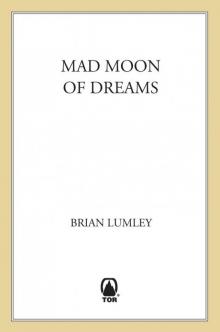 Mad Moon of Dreams
Mad Moon of Dreams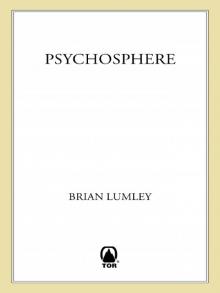 Psychosphere
Psychosphere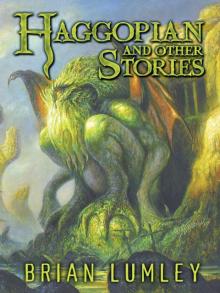 Haggopian and Other Stories
Haggopian and Other Stories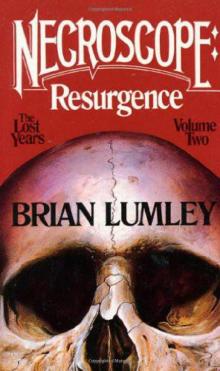 Resurgence_The Lost Years_Volume Two
Resurgence_The Lost Years_Volume Two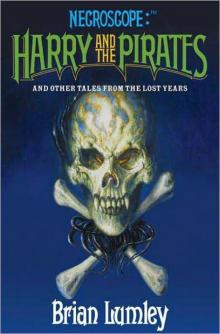 Necroscope: Harry and the Pirates: And Other Tales From the Lost Years
Necroscope: Harry and the Pirates: And Other Tales From the Lost Years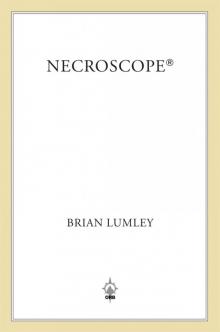 Necroscope®
Necroscope®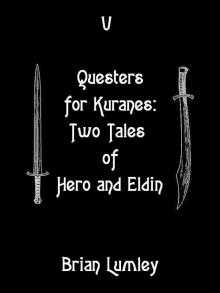 Dreamlands 5: Questers for Kuranes: Two Tales of Hero and Eldin
Dreamlands 5: Questers for Kuranes: Two Tales of Hero and Eldin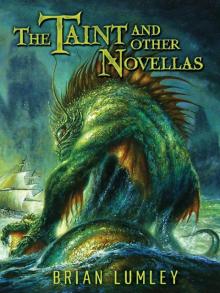 The Taint and Other Novellas: Best Mythos Tales Volume 1
The Taint and Other Novellas: Best Mythos Tales Volume 1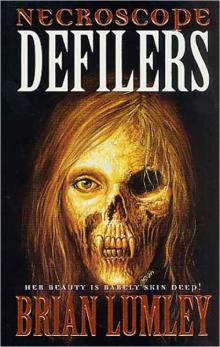 Necroscope: Defilers
Necroscope: Defilers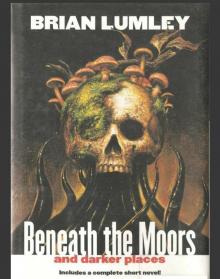 Beneath the Moors and Darker Places
Beneath the Moors and Darker Places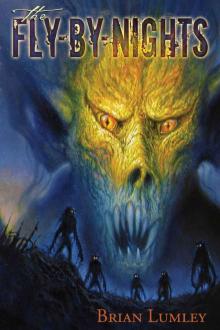 The Fly-By-Nights
The Fly-By-Nights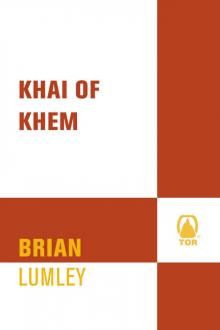 Khai of Khem
Khai of Khem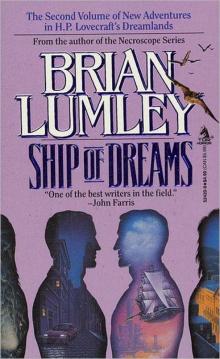 Ship of Dreams
Ship of Dreams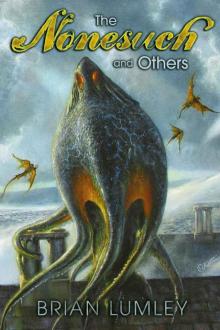 The Nonesuch and Others
The Nonesuch and Others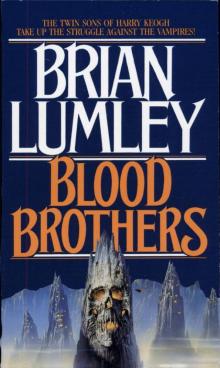 Blood Brothers
Blood Brothers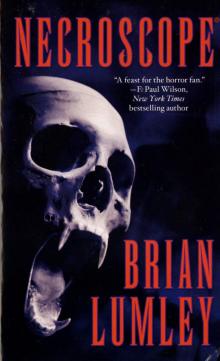 Necroscope
Necroscope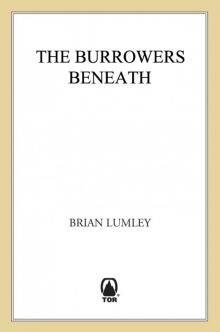 The Burrowers Beneath
The Burrowers Beneath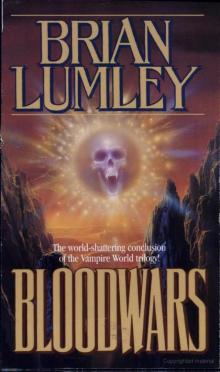 Bloodwars
Bloodwars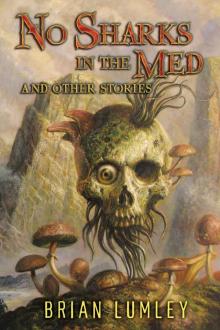 No Sharks in the Med and Other Stories
No Sharks in the Med and Other Stories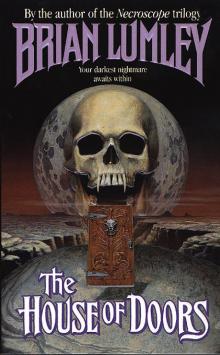 The House of Doors - 01
The House of Doors - 01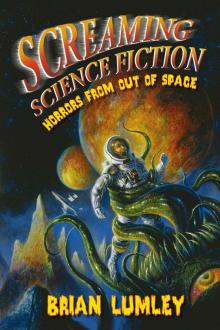 Screaming Science Fiction
Screaming Science Fiction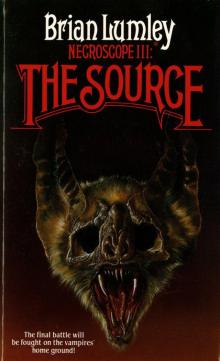 Necroscope III: The Source
Necroscope III: The Source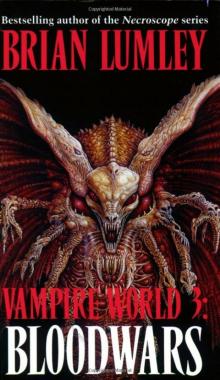 Vampire World I: Blood Brothers
Vampire World I: Blood Brothers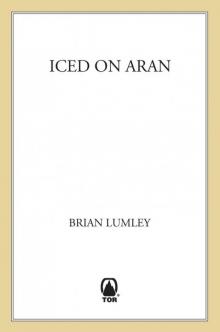 Iced on Aran
Iced on Aran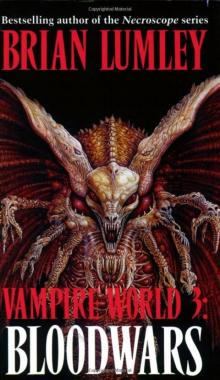 Necroscope: Invaders
Necroscope: Invaders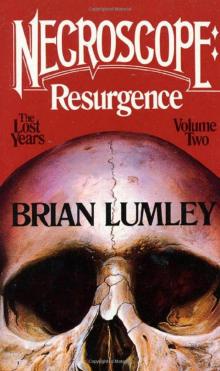 Necroscope: The Lost Years
Necroscope: The Lost Years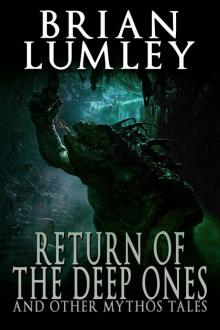 Return of the Deep Ones: And Other Mythos Tales
Return of the Deep Ones: And Other Mythos Tales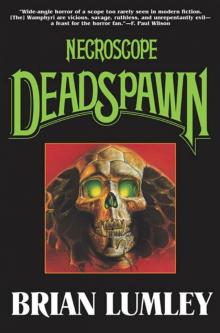 Necroscope V: Deadspawn
Necroscope V: Deadspawn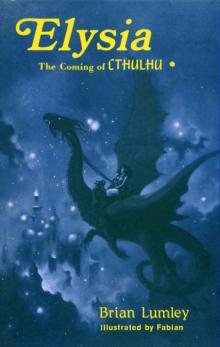 Titus Crow, Volume 3: In the Moons of Borea, Elysia
Titus Crow, Volume 3: In the Moons of Borea, Elysia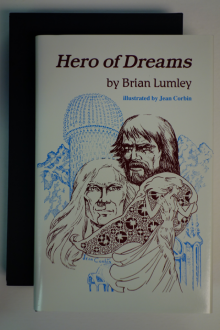 Hero of Dreams
Hero of Dreams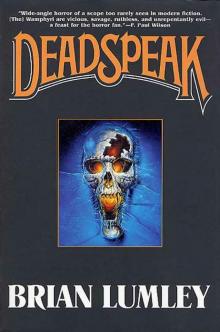 Necroscope IV: Deadspeak
Necroscope IV: Deadspeak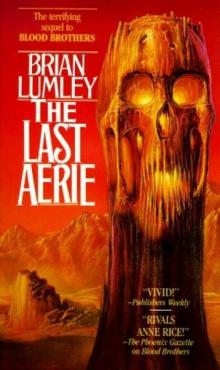 The Last Aerie
The Last Aerie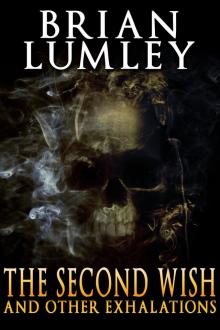 The Second Wish and Other Exhalations
The Second Wish and Other Exhalations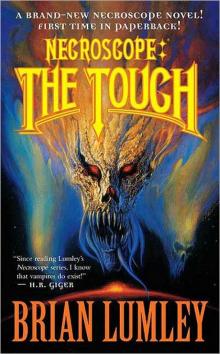 Necroscope: The Touch
Necroscope: The Touch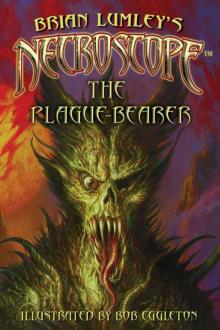 Necroscope: The Plague-Bearer
Necroscope: The Plague-Bearer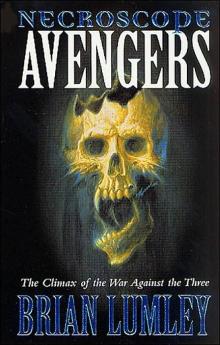 Necroscope: Avengers
Necroscope: Avengers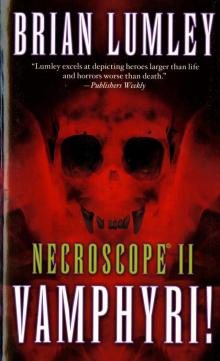 Necroscope II: Wamphyri
Necroscope II: Wamphyri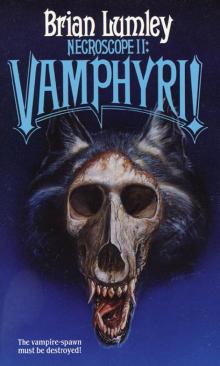 Necroscope II_Vamphyri!
Necroscope II_Vamphyri!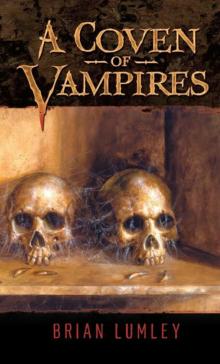 A Coven of Vampires
A Coven of Vampires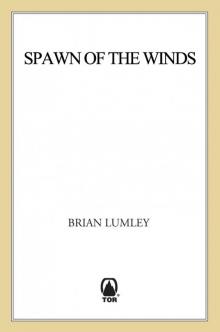 Spawn of the Winds
Spawn of the Winds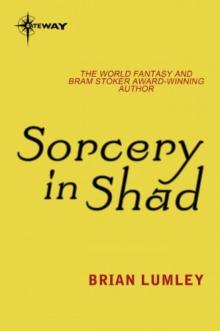 Sorcery in Shad
Sorcery in Shad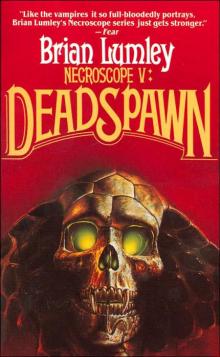 Deadspawn
Deadspawn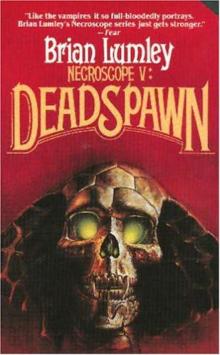 Necroscope V: Deadspawn n-5
Necroscope V: Deadspawn n-5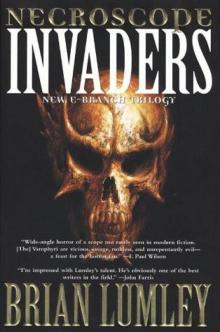 Necroscope: Invaders e-1
Necroscope: Invaders e-1![Beneath the Moors and Darker Places [SSC] Read online](http://i1.bookreadfree.com/i/03/20/beneath_the_moors_and_darker_places_ssc_preview.jpg) Beneath the Moors and Darker Places [SSC]
Beneath the Moors and Darker Places [SSC]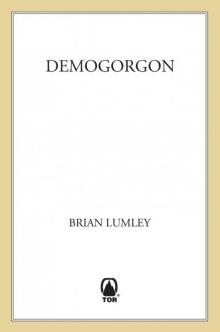 Demogorgon
Demogorgon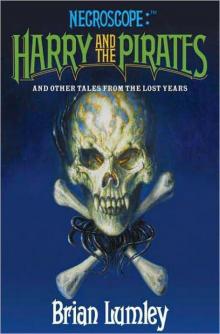 Harry and the Pirates_and Other Tales from the Lost Years
Harry and the Pirates_and Other Tales from the Lost Years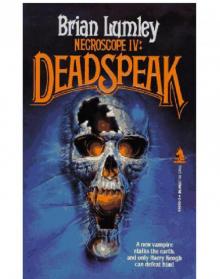 Necroscope IV: Deadspeak n-4
Necroscope IV: Deadspeak n-4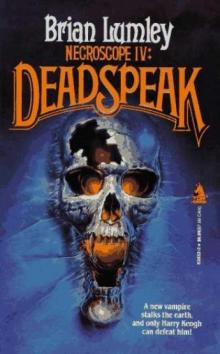 Deadspeak
Deadspeak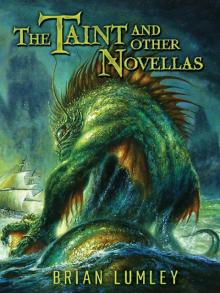 The Taint and Other Novellas
The Taint and Other Novellas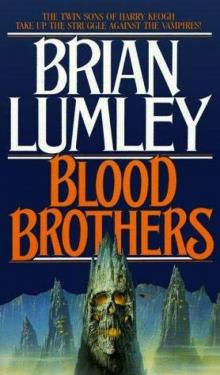 Blood Brothers vw-1
Blood Brothers vw-1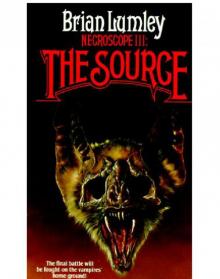 The Source n-3
The Source n-3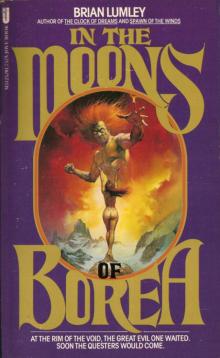 In the Moons of Borea
In the Moons of Borea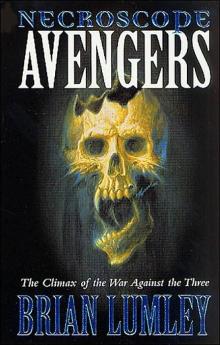 Avengers
Avengers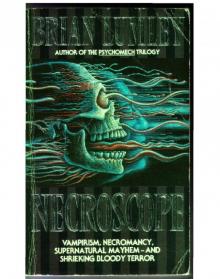 Necroscope n-1
Necroscope n-1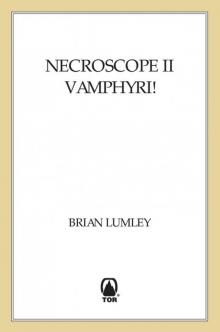 Vamphyri!
Vamphyri!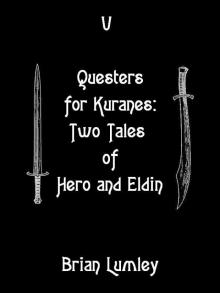 Questers for Kuranes: Two Tales of Hero and Eldin
Questers for Kuranes: Two Tales of Hero and Eldin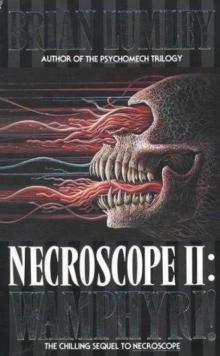 Necroscope II: Wamphyri! n-2
Necroscope II: Wamphyri! n-2 The Source
The Source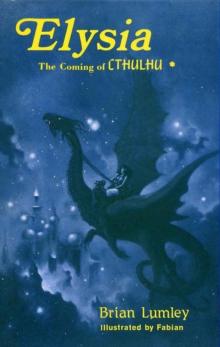 Elysia
Elysia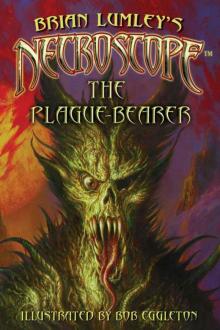 The Plague-Bearer
The Plague-Bearer The Touch
The Touch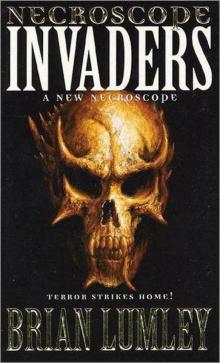 Invaders
Invaders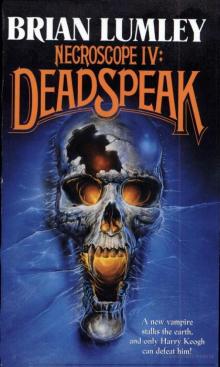 Necroscope 4: Deadspeak
Necroscope 4: Deadspeak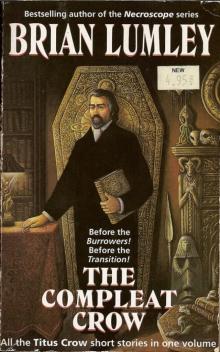 Compleat Crow
Compleat Crow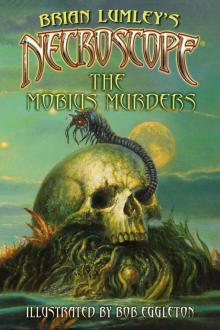 The Mobius Murders
The Mobius Murders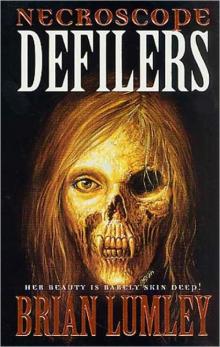 Defilers
Defilers